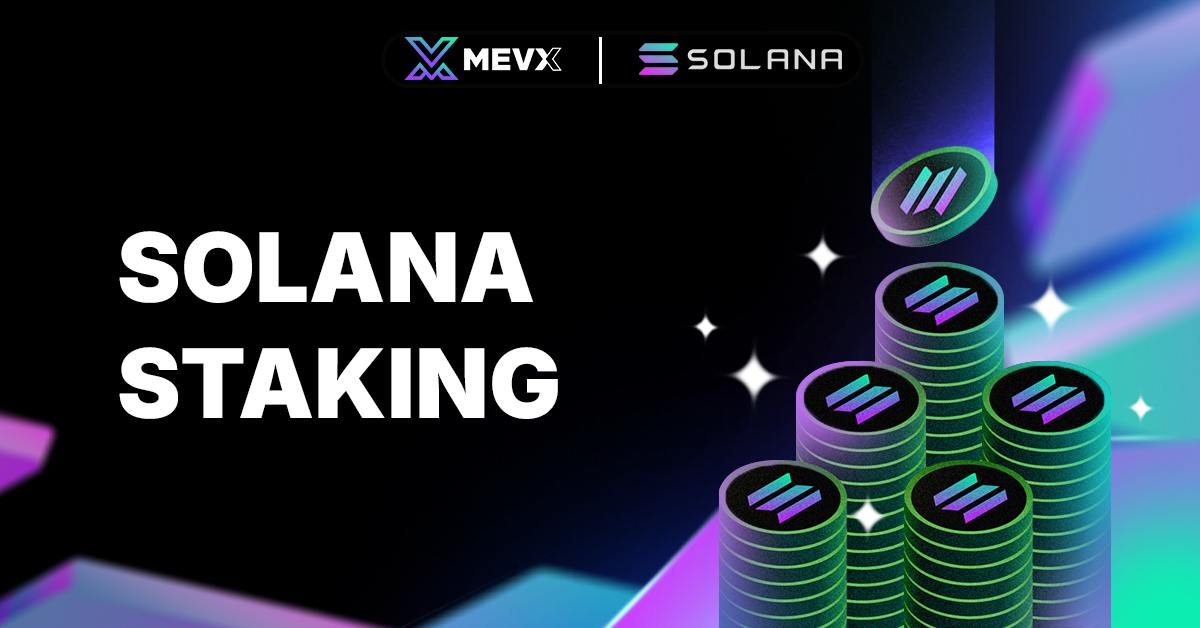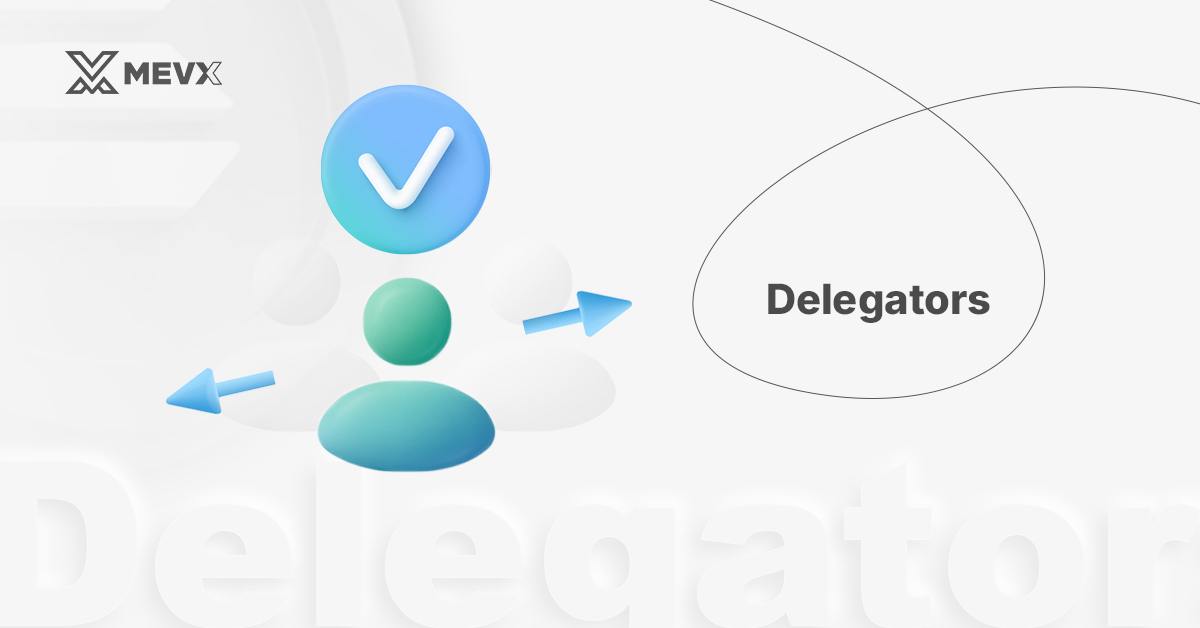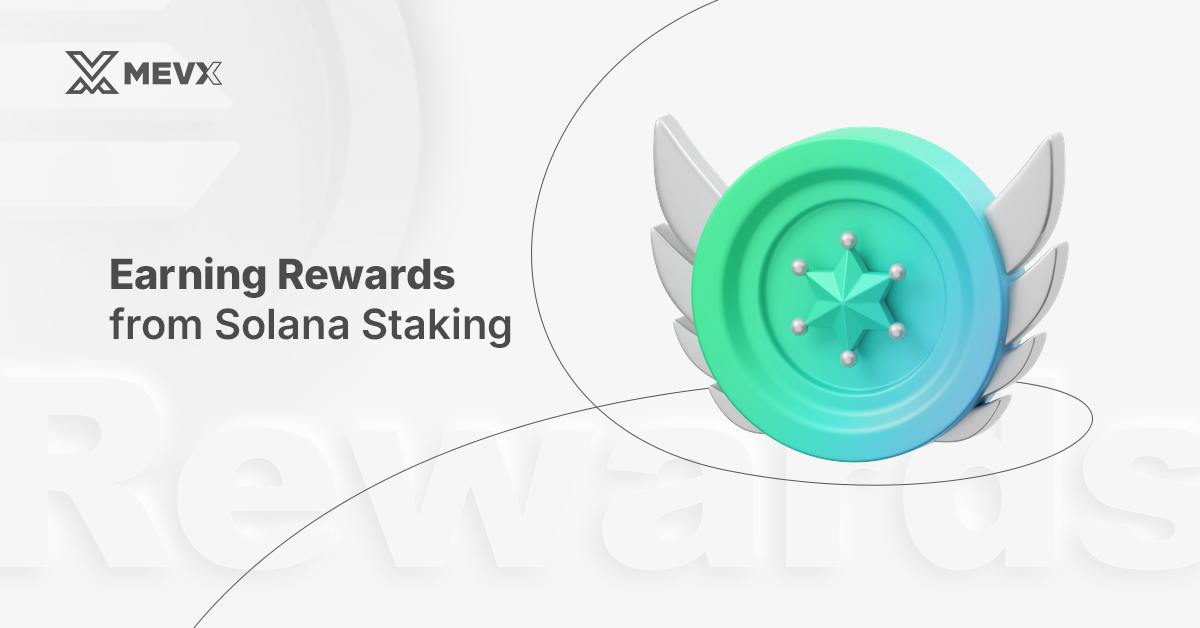Solana has gained massive popularity because it facilitates fast, low-cost transactions on its high-performance blockchain. However, besides buying and selling, there’s an attractive way of generating passive income in Solana: staking. This involves creating rewards for the holders by contributing to the security and efficiency of the network.
In this article, we will explore Solana staking, the principal roles of validators and delegators, and how participating in the network can earn you rewards.

Solana Staking
What Is Staking?
Staking in blockchain networks is a way of locking up a certain amount of cryptocurrency to support the network’s operation. In the case of Solana, the staking process helps secure the network in exchange, it validates transactions and keeps the underlying infrastructure decentralized.
Unlike Proof of Work (PoH) networks, such as Bitcoin, where the miners solve difficult puzzles to validate a block of transactions, Solana uses a Proof of Stake (PoS) consensus algorithm. In this process, participants in the network can “stake” their tokens to become part of the network’s consensus process.
How it works:
- The owners of SOL lock up their tokens on the network.
- The staked tokens take part in the validation of transactions and the creation of new blocks.
- In return, SOL stakers are rewarded with a proportion of the total tokens they stake.
Validators: The Backbone of Solana’s Network
Validators are essential to the network because they are responsible for validating transactions, creating new blocks, and ensuring the security of the blockchain with efficiency.

Validators – Backbone of Solana’s Network
How Validators Work:
- Validators use special nodes to process and validate the many transactions on the blockchain.
- They are chosen directly according to how much SOL they have staked. With more SOL contributed by themselves or through the delegators, each validator has an increased chance of selection to validate the next block.
- Once selected, validators perform complex calculations to confirm the validity of transactions, add them to the blockchain, and earn rewards for their work.
Validators are crucial to the network, but not everyone has the technical capability or resources to be one. That’s where the delegators come into place.
Delegators: Supporting Validators and Earning Rewards
If running a node as a validator sounds too complex, then don’t worry. Solana can allow you to take part in staking by being a delegator.

Solana Delegators
What Does a Delegator Do?
Delegators are some of the owners of SOL who would want to stake their tokens with a certain validator. With that, they help a validator increase his stake. It then improves the validator’s chances of being selected to produce a block and earn the rewards. A delegator, in return, gets a share of the reward that the validator earns.
What to Consider as a Delegator:
- Validator Selection: It is a serious matter for selection since any validator that acts maliciously or underperforms. It will face the consequences in the form of penalties (slashing), reducing rewards for the delegators.
- Earning Rewards: Rewards can be accrued by every delegator in proportion to the amount of SOL that a delegator stakes with the validator. The validator and the delegators shared the staking rewards.
- Validator Fees: The validators take a small commission of the reward the delegator receives. It might have a minor impact on your overall reward.
From a delegator standpoint, staking is a less technical but very effective means of contributing to the security of the Solana network while gaining some passive income in return.
How to Stake Solana (SOL) as a Delegator
Staking your SOL is a straightforward process. Here’s how you can do it in a few steps:
- Choose Wallet: You would have to choose a Solana-compatible wallet for staking SOL. Two popular options are Phantom and Solflare. Click to see how to set up a wallet.
- Deposit SOL: Make sure your wallet has some SOL tokens. You may purchase them from an exchange such as Coinbase or Binance and send them to your wallet.
- Choose a Validator: Your wallet has an option for staking; here, you will need to choose a validator to which you want to delegate your SOL. Before choosing a validator, research the validator’s performance, uptime, and commission fees.
- Stake Your SOL: After you have chosen a validator, select the amount of SOL you want to stake and confirm the transaction. Your SOL is now locked in the network, and at this point, you can start earning your rewards.
Earning Rewards from Solana Staking
Staking Solana rewards additional SOL tokens. They’re an incentive to help secure the network. A few factors influence the reward rate:

Earning Rewards from Solana Staking
- Total Network Stake: The proportion of the total amount of SOL that is the stake in the network affects the reward. For instance, if the amount of staked SOL increases, the overall reward rate can decrease.
- Validator Performance: Better performance and uptimes of the validators ensure larger rewards. It is crucial to choose those validators that have a history of reliability.
- Inflation Rate: Rewards in Solana are directly attributed to a dynamically changing inflation rate. Currently, this inflation reward starting at roughly 6-7% per year will continue to decrease as the total supply of SOL increases over time.
Rewards are distributed along the way, and you have a choice to either claim or compound them by staking even more SOL and letting your earnings grow in time.
Risks of Staking Solana
Although staking is a great opportunity to get passive income, it is relevant to know about some potential risks:
- Slashing: Some Proof of Stake (PoH) networks punish validators for misbehavior such as going offline or maliciously voting. It usually comes in the form of slashing: an imposition that results in the loss of some staked tokens. Solana does not currently slash validators for most kinds of downtime. However, this may change in future updates.
- Liquidity: The staked SOL is locked in and less liquid to be sold in a trade or used at will until the unstaking process has been initiated; that may take several days. Therefore, you may not access them immediately. Your money can get tied up.
- Market Volatility: As with every cryptocurrency, the value of SOL can fluctuate. Although staking rewards can help balance out some volatility, the overall value of your holdings remains subject to market conditions.
Why Staking Solana is Worth Considering
Staking Solana is an excellent means to earn passive income and give back to the network for growth and security. Whether you become a validator or delegate your SOL to a trusted validator, staking is a non-complicated yet rewarding opportunity for long-term SOL holders.
With staking, you are going to be able to take part in the future of one of the fastest-growing blockchain networks while earning consistent rewards. Just make sure to do your research on validators and keep in mind that potential risks may pop up on occasion to have the best experience from staking.
By staking, Solana brings together the powers of DeFi and makes this process very easy and approachable for any SOL holder who wants to grow their funds. It doesn’t matter whether you are just a beginner or a professional in crypto investments; this very attitude towards staking is wise in any case.
Share on Social Media:
